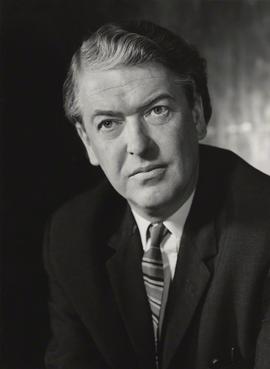
Sir Kingsley William Amis was an English novelist, poet, critic and teacher. He wrote more than 20 novels, six volumes of poetry, a memoir, short stories, radio and television scripts, and works of social and literary criticism. He is best known for satirical comedies such as Lucky Jim (1954), One Fat Englishman (1963), Ending Up (1974), Jake's Thing (1978) and The Old Devils (1986).
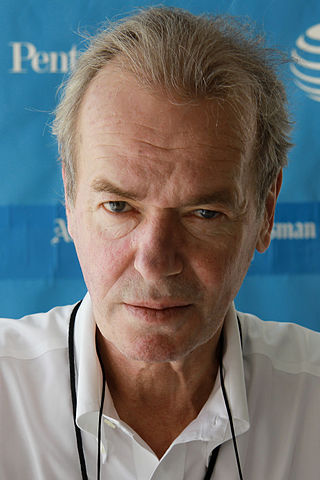
Sir Martin Louis Amis was an English novelist, essayist, memoirist, screenwriter and critic. He is best known for his novels Money (1984) and London Fields (1989). He received the James Tait Black Memorial Prize for his memoir Experience and was twice listed for the Booker Prize. Amis was a professor of creative writing at the University of Manchester's Centre for New Writing from 2007 until 2011. In 2008, The Times named him one of the 50 greatest British writers since 1945.
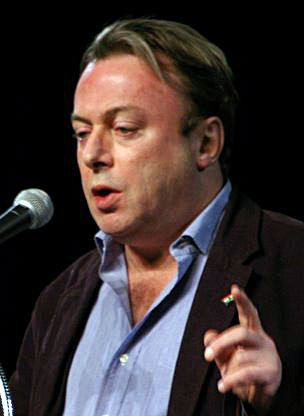
Christopher Eric Hitchens was a British and American author, journalist, and educator. Author of 18 books on faith, culture, politics and literature, he was born and educated in Britain, graduating in the 1970s from Oxford with a degree in Philosophy, Politics and Economics. In the early 1980s, he emigrated to the United States and wrote for The Nation and Vanity Fair. Known as "one of the 'four horsemen'" of New Atheism, he gained prominence as a columnist and speaker. His epistemological razor, which states that "what can be asserted without evidence can also be dismissed without evidence", is still of mark in philosophy and law.
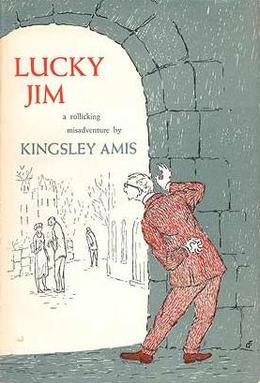
Lucky Jim is a novel by Kingsley Amis, first published in 1954 by Victor Gollancz. It was Amis's first novel and won the 1955 Somerset Maugham Award for fiction. The novel follows the academic and romantic tribulations of the eponymous James (Jim) Dixon, a reluctant history lecturer at an unnamed provincial English university.

Terence Francis Eagleton is an English literary theorist, critic, and public intellectual. He is currently Distinguished Professor of English Literature at Lancaster University.
Microcosmographia Academica is a short pamphlet on university politics written by F. M. Cornford and published in 1908. It has acquired a small cult following as a pessimistic view of academic politics presented in a readable and lively style, and is best known for its discussion of such principles as "The Wedge" and "The Dangerous Precedent":
Antitheism, also spelled anti-theism, is the philosophical position that theism should be opposed. The term has had a range of applications. In secular contexts, it typically refers to direct opposition to the belief in any deity.
The Art of Mentoring series is a series of books published by Basic Books from 2001 to 2008, beginning with Alan Dershowitz's Letters to a Young Lawyer and Christopher Hitchens' Letters to a Young Contrarian. The books were all titled in the form "Letters to a Young ____", in the spirit of Rainer Maria Rilke's book Letters to a Young Poet. They were meant to be relatively short guides to various occupations or life paths for someone starting out in that field, from the point of view of an expert.

The Trial of Henry Kissinger is a 2001 book by Christopher Hitchens which examines the alleged war crimes of Henry Kissinger, the National Security Advisor and later, the U.S. Secretary of State for Presidents Richard Nixon and Gerald Ford. Acting in the role of prosecutor, Hitchens presents Kissinger's involvement in a series of alleged war crimes in Vietnam, Cambodia, Laos, Bangladesh, Chile, Cyprus and East Timor.

God Is Not Great is a 2007 book by author and journalist Christopher Hitchens in which he makes a case against organized religion. It was originally published in the United Kingdom by Atlantic Books as God Is Not Great: The Case Against Religion and in the United States by Twelve as God Is Not Great: How Religion Poisons Everything, but was republished by Atlantic Books in 2017 with no subtitle.
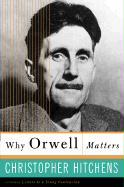
Why Orwell Matters, released in the UK as Orwell's Victory, is a book-length biographical essay by Christopher Hitchens. In it, the author relates George Orwell's thoughts on and actions in relation to: The British Empire, the Left, the Right, the United States of America, English conventions, feminism, and his controversial list for the British Foreign Office.

Christopher Hitchens was a British and American author, polemicist, debater and journalist who in his youth took part in demonstrations against the Vietnam War, joined organisations such as the International Socialists while at university and began to identify as a socialist. However, after 9/11 he no longer regarded himself as a socialist and his political thinking became largely dominated by the issue of defending civilization from terrorists and against the totalitarian regimes that protect them. Hitchens nonetheless continued to identify as a Marxist, endorsing the materialist conception of history, but believed that Karl Marx had underestimated the revolutionary nature of capitalism. He sympathized with libertarian ideals of limited state interference, but considered libertarianism not to be a viable system. In the 2000 U.S. presidential election, he supported the Green Party candidate Ralph Nader. After 9/11, Hitchens advocated the invasion of Iraq. In the 2004 election, he very slightly favored the incumbent Republican President George W. Bush or was neutral and in 2008 he favored the Democratic candidate Barack Obama over John McCain despite being critical of both of them.
The term New Atheism describes the positions of some atheist academics, writers, scientists, and philosophers of the 20th and 21st centuries. New Atheism advocates the view that superstition, religion, and irrationalism should not simply be tolerated. Instead, they advocate the antitheist view that the various forms of theism should be criticised, countered, examined, and challenged by rational argument, especially when they exert strong influence on the broader society, such as in government, education, and politics. Critics have described New Atheism as "secular fundamentalism". Major figures of New Atheism include Richard Dawkins, Sam Harris, Christopher Hitchens, and Daniel Dennett, collectively referred to as the "Four Horsemen" of the movement, as well as Ayaan Hirsi Ali, until her conversion to Christianity in 2023.

The Rage Against God is the fifth book by Peter Hitchens, first published in 2010. The book describes Hitchens's journey from atheism, far-left politics, and bohemianism to Christianity and conservatism, detailing the influences on him that led to his conversion. The book is partly intended as a response to God Is Not Great, a book written by his brother Christopher Hitchens in 2007.

Christopher Hitchens was a prolific British and American author, political journalist and literary critic. His books, essays, and journalistic career spanned more than four decades. Recognized as a public intellectual, he was a staple of talk shows and lecture circuits. Hitchens was a columnist and literary critic at The Atlantic, Vanity Fair, Slate, World Affairs, The Nation, Free Inquiry, and a variety of other media outlets.
Hitchens's razor is an epistemological razor that serves as a general rule for rejecting certain knowledge claims. It states "what can be asserted without evidence can also be dismissed without evidence". The razor was created by and later named after author and journalist Christopher Hitchens (1949–2011). It implies that the burden of proof regarding the truthfulness of a claim lies with the one who makes the claim; if this burden is not met, then the claim is unfounded, and its opponents need not argue further in order to dismiss it. Hitchens used this phrase specifically in the context of refuting religious belief.
Barbara Leaming is an American biographer, whose subjects have included Roman Polanski, Orson Welles, Rita Hayworth, Marilyn Monroe, John F. Kennedy, Winston Churchill, and Jacqueline Kennedy Onassis.

Michael Jamal Brooks was an American talk show host, writer, political commentator, and comedian. While co-hosting The Majority Report with Sam Seder, he launched The Michael Brooks Show in August 2017 and provided commentary for media outlets, making regular appearances on shows such as The Young Turks. Brooks contributed to various publications, including HuffPost, The Washington Post, Al Jazeera, openDemocracy, and Jacobin. His book Against the Web: A Cosmopolitan Answer to the New Right was published by Zero Books in April 2020.

Inside Story is an autobiographical novel by the English author Martin Amis, published in 2020. It was Amis' final novel to be published before his death in 2023.
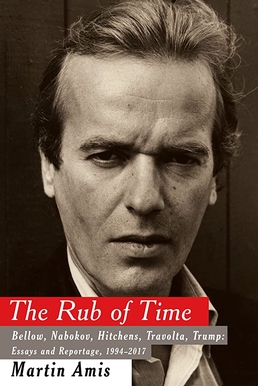
The Rub of Time: Bellow, Nabokov, Hitchens, Travolta, Trump: Essays and Reportage, 1994–2017 is a 2017 collection of non-fiction essays and criticism by the British author Martin Amis. It was his eighth nonfiction book and the final collection published during his lifetime.











